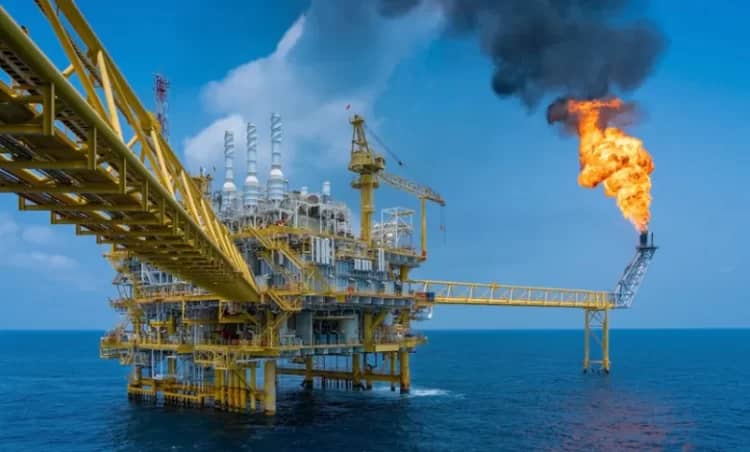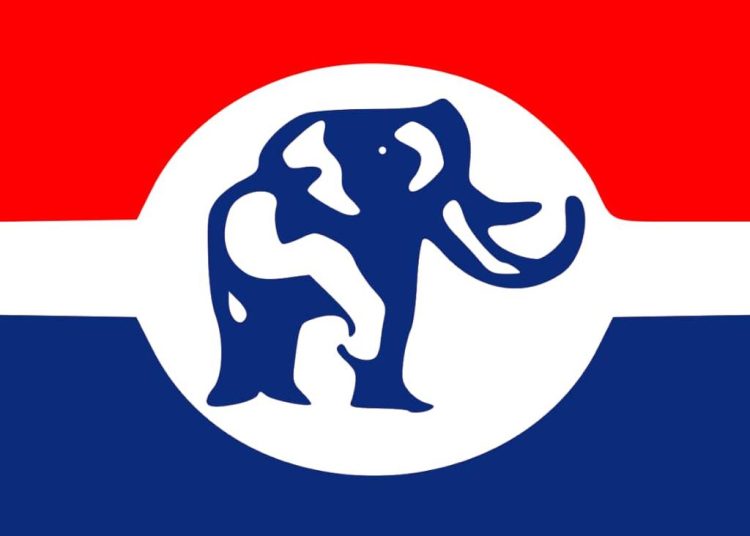Political interference and lack of transparency have been identified as the major obstacles to oil exploration in Ghana, as indicated by 45% of respondents in Deloitte’s ‘Oil and Gas Survey Analysis Report’.
These factors are seen as significant barriers to growth in the sector, impacting decision-making and project implementation. Similar concerns about political influence disrupting operations are noted in other industries.

This report follows recent comments by the United States Ambassador to Ghana, Virginia Palmer, who urged the government to uphold the sanctity of contracts in the oil and gas sector.
Ambassador Palmer pointed out that some investors consider Ghana’s business environment less favorable for smaller firms compared to other African oil-producing nations.
Ghana’s crude oil production has been steadily declining, exacerbating concerns within the sector. According to the Public Interest and Accountability Committee’s (PIAC) 2023 annual report, crude oil output fell to 48.25 million barrels in 2023, down from a peak of 71.44 million barrels in 2019.
This decline represents an average annual decrease of 9.2% over the last four years and a 7% drop from the 2022 figure of 51.7 million barrels.
In addition to political interference, respondents highlighted limited local capacities—financial, human, and technological—as driving companies toward regional and international partnerships.
Despite the underdevelopment of the country’s capital market, stakeholders remain optimistic about raising funds for oil exploration, particularly through the Ghana Stock Exchange (GSE).
The report also discusses the impact of introducing an ‘Emissions Levy’ on business investment strategies, particularly in waste management.
Tax exemptions, including breaks, amnesty, and holidays, were identified as essential government incentives, although challenges such as high processing fees and lengthy approval times persist.
Despite these hurdles, the industry remains hopeful, with international collaborations and strategic government incentives seen as crucial for unlocking the sector’s full potential.
The survey focused on three main themes—financing and investing in oil and gas, the regulatory landscape, and sustainability considerations—with 83% of respondents holding executive management positions, including executive and managing directors, chief operating officers, and general managers.
Looking ahead, 73% of respondents believe that deepwater basins offer the most promising opportunities for future exploration.
Industry stakeholders are confident that, with the right investments and strategic management, these deepwater resources could significantly contribute to the sector’s long-term growth.
Regarding financing, 40% of respondents indicated that collaboration between local and regional players would enhance funding for oil and gas.
Approximately 60% believe that indigenous exploration and production (E&P) companies can finance their operations through local capital markets and commercial banks.
Specialized insurance policies were identified by 40% of respondents as a means to improve the risk appetite of financial institutions in the industry, with hybrid financing recognized as the most effective tool.
In terms of government support, 38% suggested that tax exemptions could help independent oil and gas companies compete more effectively in the petroleum sector.
As for regulatory challenges, most respondents reported regular interactions with the Petroleum Commission and Ghana Revenue Authority (GRA).
However, 40% identified high processing fees as a significant obstacle in obtaining approvals. Additionally, 80% noted the necessity of foreign currency to meet payment obligations, with 87% facing difficulties in acquiring it.
High exchange rates were the most common issue, affecting 40% of those surveyed, while 47% believe improved foreign exchange availability from the central bank could alleviate these challenges.
Tax-related issues are also prominent in the domestic petroleum industry, with high tax rates cited as the primary concern by 46% of respondents.
Ambiguity in tax compliance and frequent changes in tax policy were also noted as significant challenges by industry players.
Overall, the report emphasizes the need for improved governance, strategic investment, and enhanced financial structures to fully unlock Ghana’s oil and gas sector potential.























































![[FREE FREE MONEY] Predict and Win a Guaranteed GH¢200 From Us EVERY WEEK](https://wordpress.ghanatalksradio.com/wp-content/uploads/2022/02/Predict-and-Win-Final-09-03-2021-218x150.jpg)
![[Predict & Win – 8th/Oct.] WIN A Guaranteed ¢200 From Us This Week](https://wordpress.ghanatalksradio.com/wp-content/uploads/2021/10/maxresdefault-16-218x150.jpg)
![[Predict & Win – 2nd] WIN A Guaranteed ¢200 From Us This Week](https://wordpress.ghanatalksradio.com/wp-content/uploads/2021/09/maxresdefault-50-218x150.jpg)
![[Predict & Win – 25th] WIN A Guaranteed ¢200 From Us This Week](https://wordpress.ghanatalksradio.com/wp-content/uploads/2021/09/maxresdefault-36-218x150.jpg)
![[Predict & Win – 18th] WIN A Guaranteed ¢200 From Us This Week](https://wordpress.ghanatalksradio.com/wp-content/uploads/2021/09/maxresdefault-23-218x150.jpg)







![[National cathedral] See full list of churches that have contributed since 2018](https://wordpress.ghanatalksradio.com/wp-content/uploads/2020/09/Ghana-National-Cathedral-GhanaTalksRadio-100x70.jpg)



![[Ashanti region] 2 wounded in clash between land guards and wood workers](https://wordpress.ghanatalksradio.com/wp-content/uploads/2023/07/wood-workers--100x70.png)